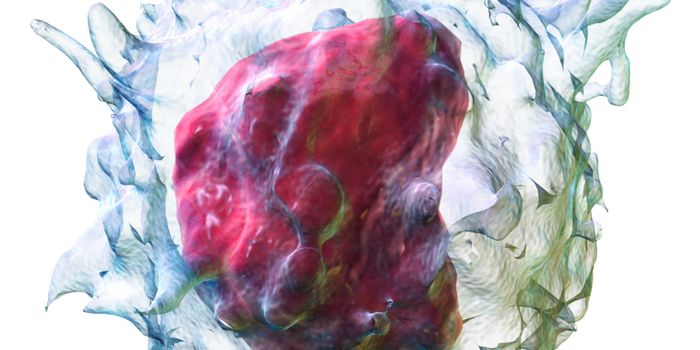Whole Tomato Extracts Halt Stomach Cancer Cells
Whole tomatoes may be more than just tasty foods. A new study reports that extracts from these fruits can stop the growth of stomach cancer cells. The results open the door for further investigation into the anticancer effects of tomatoes.
Stomach cancer, also known as gastric cancer, is the fifth most common cancer worldwide and the third most common cause of cancer-related deaths. About 1 in 111 people will develop stomach cancer in their lifetime, though the risks are higher for men. For 2016, the estimated incidence of new cases is over 37,000 for the U.S. alone. Due to late diagnoses, the outcome is poor with this cancer type and only about 25 percent of people survive past the five-year mark.
Tomatoes are high lycopene, one of the naturally occurring carotenoids. Some previous research suggest lycopene has potent antioxidant activity, which may play a role in the prevention of cancer development. In addition, lycopene as a supplement has other health benefits, such as reducing the risk of type 2 diabetes, osteoporosis, and coronary heart disease.
But instead of distilling just lycopene, researcher from the US and Italy wondered whether tomatoes as a whole could fight cancer. Indeed, the team exposed stomach cancer cell lines to whole extracts from San Marzano and Corbarino tomatoes.
They found that extracts from both varieties stopped the growth of the cancer cells. Furthermore, the extracts halted the cell’s other malignant characteristics, such as migration and cloning behavior, and disrupted the entire cell cycle.
But these effects didn’t seem to be attributable to just lycopene. "Their antitumoral effect seem not related to specific components, such as lycopene, but rather suggest that tomatoes should be considered in their entirety," said Daniela Barone, researcher at the Oncology Research Center of Mercogliano (CROM), and the study’s lead author.
Interestingly, tomatoes are a key food in the Mediterranean diet, which has been linked with lower cancer risks. But further research would be necessary to conclude whether factors, other than whole tomatoes, are responsible for the purported health benefits of this diet.
"Our results prompt further assessment of the potential use of specific nutrients not only in the cancer prevention setting but also as a supportive strategy along with conventional therapies," said Antonio Giordano, the study’s senior investigator.
A big caveat of the current study is that the anticancer effects of whole tomatoes were observed in cell lines. Researchers will next have to show similar effects in animal models of gastric cancer to be more convincing. Furthermore, they also have to answer whether the promising anticancer effects are limited to certain tomato varieties. "Distinct species may exert different effects, in different stages of a certain neoplasm," said Barone.
Additional source: Sbarro Health Research Organization









